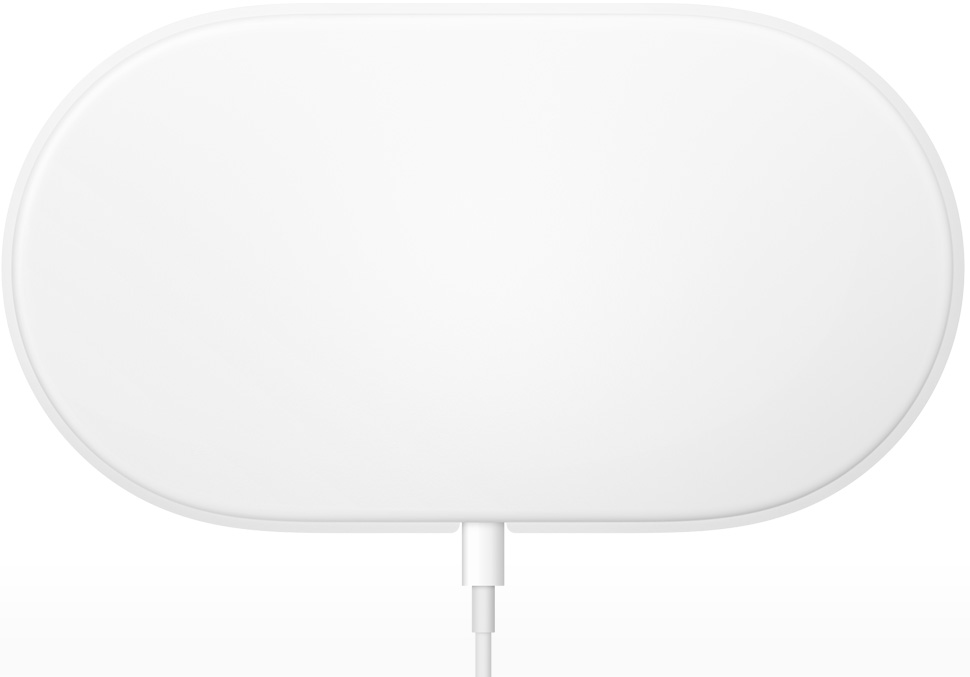Obituaries circulated for Apple’s AirPower soon after Apple removed the accessory from its website, and justifiably so. Originally promised for 2018, the wireless charging mat certainly wasn’t the first Apple product to miss its expected release date, but as a general statement, Apple explains and reschedules troubled products rather than making them disappear and going silent. Scrubbing the site of all AirPower mentions was an atypically bad sign.
Based on evidence available at the time, including insider claims of serious technical problems, I strongly believed that AirPower had been canceled or put on an indefinite re-engineering hold — either reason should have compelled Apple to tell customers that they wouldn’t be getting the product they expected in 2018. Only two reasons strike me as plausible explanations for Apple’s continued silence: It doesn’t actually know when AirPower’s coming out, or it’s concerned about a massive class action lawsuit by lawyers representing iPhone 8, iPhone 8 Plus, iPhone X, AirPods, and Apple Watch Series 3 owners.
Absent any announcement from Apple, I’m inclined to believe the latter explanation. There have been countless opportunities for Apple to say something, including responding to journalists’ AirPower queries following big public events in September and October, or issuing a brief statement through a representative at any time before 2018 ended. The lack of any AirPower communication explains why writers were ready with “AirPower misses 2018” tweets and articles the moment the clock struck 2019 anywhere in the world.
Canceling AirPower would present Apple with a unique problem: It was prominently marketed alongside multiple 2017-2018 Apple products as a way — arguably the exclusive way — to enjoy a major new feature of the devices, intelligent wireless charging. The iPhone 8, 8 Plus, and X were the first iPhones to support any type of wireless charging, and AirPower went further, promising that iPhone screens would offer live status updates on simultaneously charging AirPods and Apple Watches. AirPower’s charging system was supposed to be so sophisticated that it required at least an Apple Watch Series 3, and AirPods would require a new wireless charging case, too.
June 5th: The AI Audit in NYC
Join us next week in NYC to engage with top executive leaders, delving into strategies for auditing AI models to ensure fairness, optimal performance, and ethical compliance across diverse organizations. Secure your attendance for this exclusive invite-only event.

This could be a legal disaster for Apple. iPhone, AirPods, and Apple Watch customers who say they bought their devices specifically to use with AirPower could be entitled to partial refunds. When a product fails to deliver a marketed capability, class action lawsuits tend to focus not on whether refunds are due, but how much the refunds should be, and how many people are entitled to them. If Apple explicitly confirms AirPower is dead, you can be sure that class action lawsuits will follow, with tens of millions of potential claimants in the pool.
Measuring damages could be interesting. Apple would likely argue that its customers weren’t harmed at all, since they never had to purchase the multi-device charging mat or optional AirPods charging case, neither of which would have been cheap. But class action attorneys will say that the promised feature was marketed as a convenience, and a way to get customers to buy new iPhones, Apple Watches, and AirPods, all of which were supposed to be easy to charge together.
In order to show damages, a customer might need to prove that she bought both a new iPhone and either AirPods or a new Apple Watch after AirPower was announced, then unsuccessfully sought other wireless charging options. Apple may have never updated iOS with the intelligent multi-charging feature, but it did offer new iPhone and Apple Watch-compatible single-device wireless chargers through its online store. Some third-party accessory makers have stepped up with AirPower-esque alternatives, as well.

Apple’s website scrubbing was likely an attempt to mitigate customers’ damage claims. The company effectively stopped all marketing of AirPower after a year, pulling all references from existing pages, then omitting the accessory from newer iPhone and Apple Watch pages when they debuted in September. Tiny AirPower references have since been spotted in certain recent device pamphlets and user guides, but apart from the speculation they’ve caused — namely, that AirPower hasn’t been canceled — they’re not marketing the accessory.
Even so, interest in AirPower has continued, and as long as Apple says nothing on the record, it is allowing at least some customers to keep believing that the accessory is still in the works. As painful as it might be to make a final status update announcement at this stage, doing so could limit the accrual of further customer damages, and finally bring this long-unresolved issue to rest.

